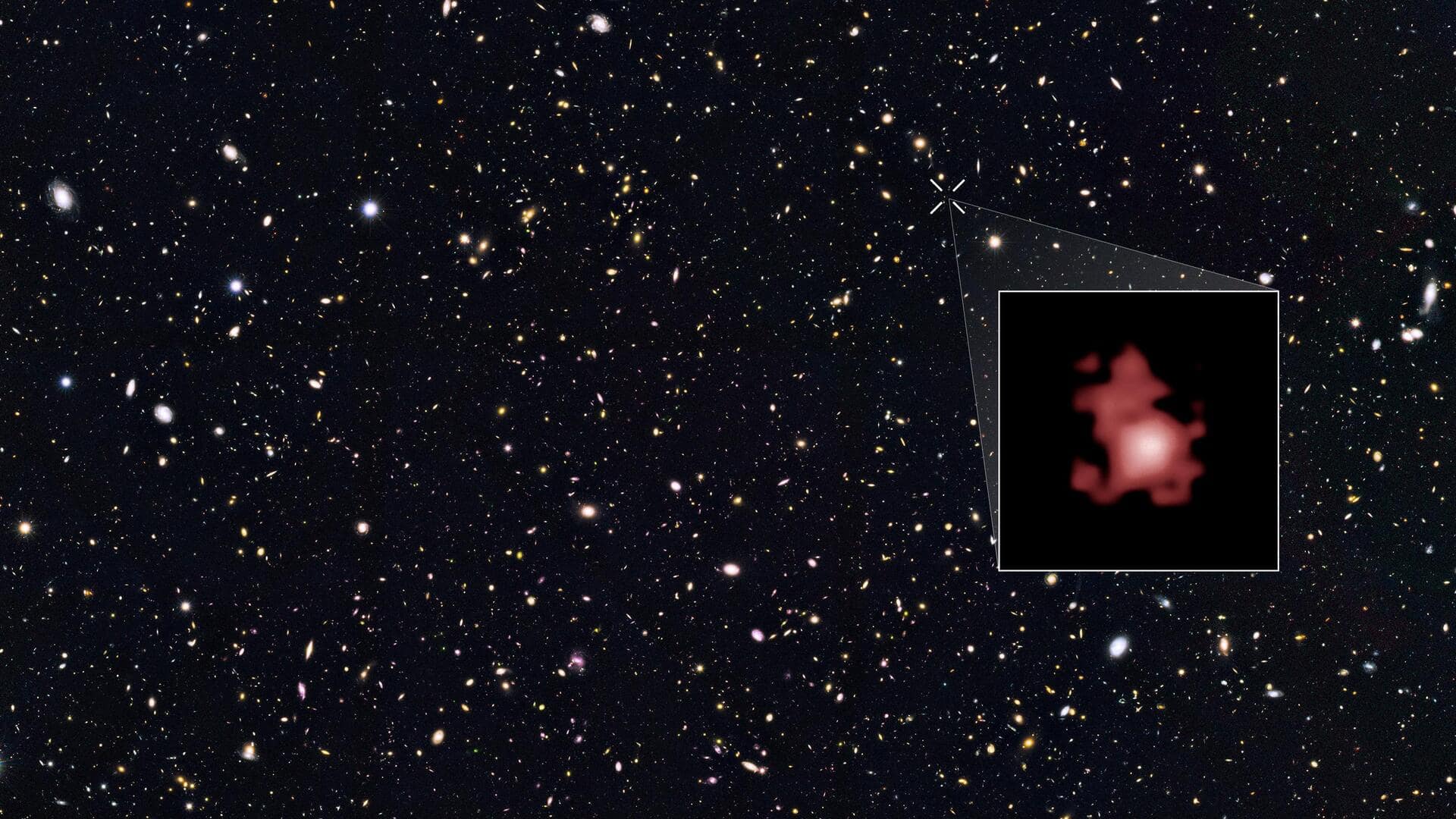
Oxygen detected in the most distant galaxy ever discovered
What's the story
In a groundbreaking discovery, astronomers have detected oxygen in the most distant galaxy ever found, JADES-GS-z14-0.
The celestial body was first identified by NASA's James Webb Space Telescope (JWST) during its exploration of Cosmic Dawn—a period in the first few hundred million years after the Big Bang, when the first galaxies were born.
The light from this galaxy has taken an astonishing 13.5 billion years to reach us, giving us a unique glimpse into the early universe's formation and evolution.
Paradigm shift
Discovery challenges existing theories about early universe
The finding of oxygen in JADES-GS-z14-0 has astonished scientists who thought elements heavier than hydrogen and helium weren't present in significant amounts until much later.
The galaxy has about 10 times as many heavy elements as previously thought possible, indicating that the early universe matured faster than previously believed.
This discovery contradicts current theories of galaxy formation and evolution during this era.
Publication
New findings published in peer-reviewed journals
The results of this landmark discovery have been published by two independent teams in peer-reviewed research journals.
One team published their findings in Astronomy & Astrophysics on March 20, 2025, while the other team published their results in The Astrophysical Journal on the same day.
The publications offer further insights into the formation and evolution of the early universe.
Expert insights
Discovery offers new perspective on galaxy evolution
Cosmologist Sander Schouws of Leiden Observatory in the Netherlands compared the discovery to "finding an adolescent where you would only expect babies."
He said these results indicate the galaxy has formed and matured quickly, corroborating evidence that galaxies form much faster than expected.
Stefano Carniani, lead author of a paper accepted for publication in Astronomy & Astrophysics, was astonished by the unexpected results and their implications for understanding early galaxy evolution.
Questions raised
It raises questions about galaxy formation
The presence of oxygen in JADES-GS-z14-0, discovered by two international teams using the ALMA radio telescope, raises questions about when and how the galaxies formed.
The finding also aligns with earlier hints detected by the JWST.
The discovery challenges previous assumptions that young galaxies only contained light elements such as hydrogen and helium, suggesting a more complex early universe than previously thought.